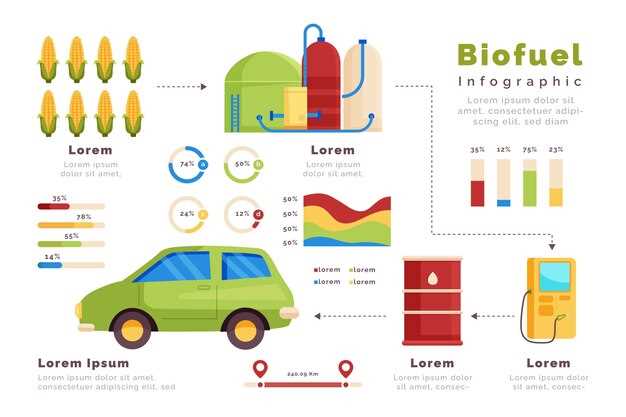

As summer approaches, the excitement of hitting the open road for a memorable road trip becomes palpable. However, before embarking on your adventure, it’s crucial to consider the type of fuel you’ll be using, particularly if you’re driving a diesel vehicle. Proper attention to diesel fuel during the hot summer months can lead to a smoother and more efficient journey.
High temperatures can affect diesel fuel in various ways, from increasing the risk of fuel degradation to affecting engine performance. Understanding how to properly manage your fuel and vehicle can significantly impact your travel experience. Whether you’re planning a long cross-country drive or a weekend getaway, following these essential tips will ensure you make the most of your summer road trip.
In this article, we will explore key considerations for maintaining your diesel fuel quality, offer practical advice for summer travel, and highlight strategies to avoid common pitfalls that could derail your road trip. Being informed and prepared is the key to achieving road trip success this summer.
Choosing the Right Diesel Fuel for Hot Weather

During summer road trips, selecting the appropriate diesel fuel is essential for optimal vehicle performance and to prevent potential issues caused by heat. Here are key factors and tips to consider while prepping for your journey:
- Seasonal Fuel Blends: Diesel fuel can vary by season. In summer, fuels are often blended to reduce emissions and improve performance in warmer temperatures. Look for summer blends designed to handle heat efficiently.
- Preventing Fuel Gelling: While gelling is more common in winter, high temperatures can also lead to problems with fuel stability. Ensure your diesel fuel is properly treated with additives that maintain fluidity even in heat.
- Fuel Quality: Purchase diesel from reputable sources to ensure high-quality fuel. Poor quality fuel can lead to injector problems and reduced power, especially during hot weather.
- Water and Contaminants: Hot weather can increase the likelihood of water condensation in tanks and lines. Always use a fuel filter designed to remove water and other contaminants.
- Thermal Stability: Look for fuel that has good thermal stability to defend against breakdown under high temperatures. Research products known for their thermal performance.
- Check Additives: Some diesel fuels contain proprietary additives that help improve engine performance in extreme temperatures. Make sure to choose a fuel that has beneficial additives for hot weather.
By paying attention to these aspects when choosing diesel fuel for summer road trips, you can ensure a smoother and more successful travel experience. Proper prep and careful selection will help keep your vehicle running efficiently, even in the heat of summer.
Preventing Fuel Contamination During Summer Travels

Summer travels can expose your diesel fuel to various contaminants that may impact vehicle performance. To ensure a smooth journey, it’s essential to take preventive measures against fuel contamination.
1. Choose Quality Fuels: Always fill up at reputable locations. High-quality diesel from trusted suppliers is less likely to contain impurities. Avoid filling up at stations that may have low turnover, as their fuel could be old or compromised.
2. Use Fuel Additives: Consider using a biodiesel-friendly additive specifically designed to combat bacteria and algae growth. These additives enhance the stability of diesel fuel, especially in warmer temperatures when microbial growth is accelerated.
3. Keep It Clean: Regularly inspect and clean your fuel tank and filters. Contaminants can accumulate over time, especially in summer when heat stimulates degradation and degradation products can remain in the fuel system.
4. Monitor Temperature: Diesel fuel can expand in heat, leading to condensation inside the tank. Ensure that your tank is full before leaving to minimize the amount of air in the tank, which can lead to moisture accumulation.
5. Avoid Fueling During Peak Temperatures: Try to refuel during the cooler parts of the day. Fuel storage tanks are often warmer, and fueling during hot conditions can increase the chance of vaporization and contamination.
By following these tips, you can significantly reduce the risk of diesel fuel contamination during your summer travels, ensuring your road trip remains hassle-free.
Maintaining Your Diesel Engine for Optimal Performance
Proper maintenance of your diesel engine is crucial, especially during the summer months when temperatures rise and fuel demand increases. To ensure optimal performance, start by regularly checking the fuel system. Using high-quality diesel fuel can prevent potential issues related to engine operation and extend the lifespan of your engine components.
During summer, it is essential to monitor the temperature of the engine. Overheating can cause severe damage, so ensure that the cooling system is functioning effectively. Check the coolant levels and replace any worn-out hoses to maintain efficient cooling.
Another vital aspect of diesel engine maintenance is the air filter. A clean air filter ensures proper airflow and improves combustion efficiency. Inspect it regularly and replace it when necessary to prevent performance degradation, especially when driving in dusty summer conditions.
Additionally, consider changing the oil and oil filters more frequently during hotter months. Fresh oil helps maintain a stable operating temperature and lubricates crucial components, reducing wear and tear.
Finally, keep an eye on the fuel tanks and lines for any signs of contamination or algae growth, which can occur in warmer weather. Regularly cleaning the fuel system can help prevent blockages and ensure a steady supply of diesel fuel to the engine.







